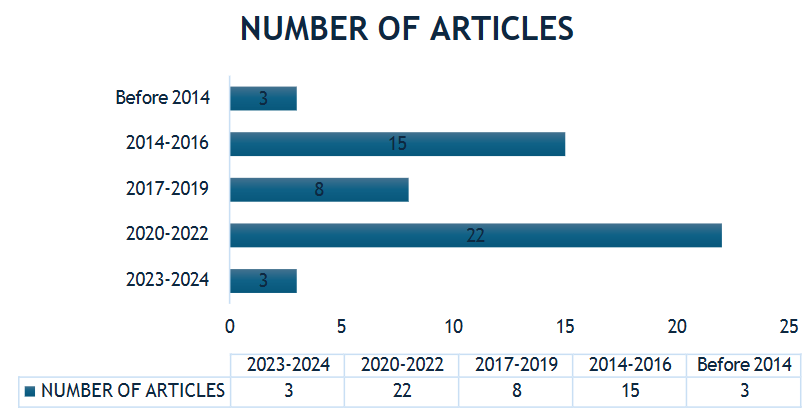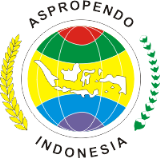ENVIRONMENTAL EDUCATION IN SOCIAL STUDIES: THE INTEGRATED EVALUATION MODEL FOR ENVIRONMENTAL EDUCATION (IEMEE)
DOI:
https://doi.org/10.23917/jpis.v34i2.6136Keywords:
Environmental education, Social studies, Evaluation framework, Integrated Evaluation Model for Environmental Education (IEMEE), Program effectiveness, Sustainable behaviourAbstract
This paper introduces the Integrated Evaluation Model for Environmental Education (IEMEE), a theoretical framework designed to assess the effectiveness of environmental education initiatives within social studies. The introduction highlights the significance and history of environmental education in social studies, outlining the objectives, research questions, and study problem. The literature review discusses the concept, benefits, theoretical frameworks, and assessment methods related to environmental education. The theoretical framework section identifies key evaluation variables, justifies the selected framework, integrates relevant frameworks, and proposes the IEMEE. The discussion and implications section summarizes the primary findings of the IEMEE, examines its implications for environmental education and evaluators, suggests additional research topics, and provides recommendations for future research. This research contributes to the field of environmental education by offering a comprehensive framework for evaluating programs within social studies, supporting systematic assessment and informed decision-making for program growth and improvement.
Downloads
References
Abdurrahman, A., Maulina, H., Nurulsari, N., Sukamto, I., Umam, A. N., & Mulyana, K. M. (2023). Impacts of Integrating Engineering Design Process into STEM Makerspace on Renewable Energy Unit to Foster Students’ System Thinking Skills. Heliyon, 9(4), 1–12. https://doi.org/10.1016/j.heliyon.2023.e15100.
Acharibasam, J. B., & McVittie, J. (2022). Connecting children to nature through the integration of Indigenous Ecological Knowledge into Early Childhood Environmental Education. Australian Journal of Environmental Education, 39(3), 349–361. https://doi.org/10.1017/aee.2022.37.
Alordiah, C. O. (2024). Evaluation of a Research Training Workshop for Academic Staff in Tertiary Institutions: A Kirkpatrick Model Approach. Journal of Applied Learning & Teaching (JALT), 7(1), 303-313 https://doi.org/10.37074/jalt.2024.7.1.32.
Anh, V. (2018). Evaluation Models in Educational Program: Strengths and Weaknesses. Tạp Chí Nghiên Cứu Nước Ngoài, 34(2), 140-150. https://doi.org/10.25073/2525-2445/vnufs.4252.
Băneș, A., Orboi, M.-D., Popescu, C., & Iancu, T. (2015). School-Community Partnership - an Effective Tool, Useful for Environmental Community Development of Romanian Countryside. International Journal of Learning & Teaching, 7(2), 56–56. https://doi.org/10.18844/ijlt.v7i2.169.
Bermudez, A. (2015). Four Tools for Critical Inquiry in History, Social Studies, and Civic Education. Revista De Estudios Sociales, 52, 102–118. https://doi.org/10.7440/res52.2015.07.
Blanco, M. B., Rudman, A. N., Greene, L. K., Razafindrainibe, F., Andrianandrasana, L., & Welch, C. (2020). Back to Basics: Gaps in Baseline Data Call for Revisiting an Environmental Education Program in the SAVA Region, Madagascar. PLoSONE 15(4), e0231822. https://doi.org/10.1371/journal.pone.0231822.
Bowser, G., & Cid, C. R. (2021). Promoting Action Ecology Research Through Integration of Environmental Justice in Undergraduate Ecology Education. Bulletin of The Ecological Society of America, 102(3), e01873. https://doi.org/10.1002/bes2.1873.
Brinson, J. R. (2015). Learning Outcome Achievement in Non-Traditional (Virtual And Remote) Versus Traditional (Hands-On) Laboratories: A Review of The Empirical Research. Computers & Education, 87, 218–237. https://doi.org/10.1016/j.compedu.2015.07.003.
Chen, J. S., & Martin, A. (2015). Role-Play Simulations as a Transformative Methodology in Environmental Education. Journal of Transformative Education, 13(1), 85–102. https://doi.org/10.1177/1541344614560196.
Davis, J. M. (2016). Toward a Capacity Framework for Useful Student Learning Outcomes Assessment in College Foreign Language Programs. The Modern Language Journal, 100(1), 377-399. https://doi.org/10.1111/modl.12319.
Dennick, R. (2016). Constructivism: Reflections on Twenty-Five Years Teaching the Constructivist Approach in Medical Education. International Journal of Medical Education, 7, 200–205. https://doi.org/10.5116/ijme.5763.de11.
Egan-Simon, D.(2022). Active Agents of Change: A Conceptual Framework for Social Justice-Orientated Citizenship Education. Equity in Education & Society, 1(2), 297–310. https://doi.org/10.1177/27526461221089350.
Eliades, F., Doula, M. K., Papamichael, I., Vardopoulos, I., Voukkali, I., & Zorpas, A. A. (2022). Carving Out a Niche in theSustainability Confluence for Environmental Education Centers in Cyprus and Greece. Sustainability, 14(14), 8368–8368. https://doi.org/10.3390/su14148368.
Granit-Dgani, D., Kaplan, A., & Flum, H. (2017). Theory-Based Assessment in Environmental Education: A Tool for Formative Evaluation. Environmental Education Research, 23(2), 269–299. https://doi.org/10.1080/13504622.2016.1144172.
Hahn, C. L., Bernard-Powers, J., Crocco, M. S., & Woyshner, C. (2014). Gender Equity in Social Studies. 365–388. https://doi.org/10.4324/9781315759586-27.
Harclerode, M., Lal, P., Vedwan, N., Wolde, B., & Miller, M. I. (2016). Evaluation of the Role of Risk Perception in Stakeholder Engagement to Prevent Lead Exposure in An Urban Setting. Journal of Environmental Management, 184, 132–142. https://doi.org/10.1016/j.jenvman.2016.07.045.
Harvey, J., & Vásquez, C. (2015). Preparing for the Complexities of Teaching:Modeling Conceptual Thinking in Post-Observation Conferences. 68(1), 091–091. https://doi.org/10.5007/2175-8026.2015v68n1p91.
Hasan, A., Yasin, S. M., & Yunus, M. A. C. (2015). A Conceptual Framework for Mechatronics Curriculum Using Stufflebeam CIPP Evaluation Model. Procedia-Social and Behavioral Sciences, 195, 844–849. https://doi.org/10.1016/j.sbspro.2015.06.324.
Hoekstra, R. (2020). SNA and beyond: Towards a Broader Accounting Framework That Links The SNA, SDGS And Other Global Initiatives. Statistical Journal of the IAOS, 36(3), 657–675. https://doi.org/10.3233/sji-200653.
Ichsan, I. Z., Sigit, D. V., Fachrial, N. F. H., Nurafifah, S., Ali, A. T., Sison, M. H., Nurfadhilah, N., Sa’diyah, R., & Rahmaniar, Y. (2022). HOTSCC-Ichsan: HOTS of Climate Change with Ichsan’s Taxonomy for Elementary Teacher Candidates. Jurnal Penelitian Pendidikan IPA (JPPIPA), 8(1), 13–17. https://doi.org/10.29303/jppipa.v8i1.930.
Janakiraman, S., Watson, S. L., Watson, W. H., & Cheng, Z. (2021). Creating Environmentally Conscious Engineering Professionals Through Attitudinal Instruction: A Mixed Methods Study. Journal of Cleaner Production, 291, 125957–125957. https://doi.org/10.1016/j.jclepro.2021.125957.
Ju, H., Minkyung, O., Lee, J.-H., & Yoon, B. H. (2021). Adapting an Integrated Program Evaluation for Promoting Competency-Based Medical Education. Korean Medical Education Review, 23(1), 56–67. https://doi.org/10.17496/kmer.2021.23.1.56.
Khanipoor, F., Amini, M., & Bazrafkan, L. (2017). Evaluation of Educational Program in the Master of Medical Education by Eisner’s Educational Connoisseurship and Criticism Model. PubMed, 6, 55–55. https://doi.org/10.4103/jehp.jehp_103_15.
Kozar, J. M., & Connell, K. Y. H. (2013). Socially and Environmentally Responsible Apparel Consumption: Knowledge, Attitudes, and Behaviors. Social Responsibility Journal, 9(2), 315–324. https://doi.org/10.1108/srj-09-2011-0076.
Laaloua, H. (2023). The Role of Education in Addressing Environmental Challenges: A Study of Environmental Education Integration in Moroccan Geography Textbooks. International Journal of Social Science and Human Research, 06(04), 2317-2325. https://doi.org/10.47191/ijsshr/v6-i4-41.
Manik, S., Sembiring, M., Padang, I., & Manurung, L. (2022). Theory of Bandura’s Social Learning in The Process of Teaching at SMA Methodist Berastagi Kabupaten Karo. Jurnal Visi Pengabdian Kepada Masyarakat, 3(2), 85–96. https://doi.org/10.51622/pengabdian.v3i2.729.
Michalovich, A., Mayer, Y., Hershler, L., Bulk, L. Y., Cook, C., Graf, H., Lee, M. D., Belliveau, G., & Jarus, T. (2022). Through a Glass Brightly: Generative Ethical Tensions in Research-Based Theatre. Qualitative Inquiry, 29(2), 267–276. https://doi.org/10.1177/10778004221097677.
Mills, L. A., Knezek, G., & Khaddage, F. (2014). Information Seeking, Information Sharing, and Going Mobile: Three Bridges to Informal Learning. Computers in Human Behavior, 32, 324–334. https://doi.org/10.1016/j.chb.2013.08.008.
Moon, J., & Ke, F. (2020). Exploring the Relationships Among Middle School Students’ Peer Interactions, Task Efficiency, and Learning Engagement in Game-Based Learning. Simulation & Gaming, 51(3), 310–335. https://doi.org/10.1177/1046878120907940.
Nardi, F., Cudennec, C., Abrate, T., Allouch, C., Annis, A., Assumpção, T. H., Aubert, A. H., Berod, D., Braccini, A. M., Buytaert, W., Dasgupta, A., Hannah, D. M., Mazzoleni, M., Polo, M. J., Sæbø, Ø., Seibert, J., Tauro, F., Teichert, F., Teutonico, R. A., Uhlenbrook, S., Vargas, C. W., & Grimaldi, S. (2021). Citizens AND HYdrology (CANDHY): Conceptualizing a Transdisciplinary Framework for Citizen Science Addressing Hydrological Challenges. Hydrological Sciences Journal, 67(16), 2534–2551. https://doi.org/10.1080/02626667.2020.1849707.
Niblett, B. (2020). Integrating Advocacy and Environmental Education: A Response to Burns & Norris. Paideusis, 20(1), 4–13. https://doi.org/10.7202/1071839ar.
Nordin, A., & Wahlström, N. (2019). Transnational Policy Discourses on ‘Teacher Quality’: An Educational Connoisseurship and Criticism Approach. Policy Futures in Education, 17(3), 438–454. https://doi.org/10.1177/1478210318819200.
Ortlieb, S. A., & Carbon, C.-C. (2019). A Functional Model of Kitsch and Art: Linking Aesthetic Appreciation to the Dynamics of Social Motivation. Frontiers in Psychology, 9, 1-17. https://doi.org/10.3389/fpsyg.2018.02437.
Pill, S., & SueSee, B. (2017). Including Critical Thinking and Problem Solving in Physical Education. Journal of Physical Education, Recreation & Dance, 88(9), 43–49. https://doi.org/10.1080/07303084.2017.1367741.
Raselimo, M., & Wilmot, D. (2013). Geography Teachers’ Interpretation of A Curriculum Reform Initiative: The Case of the Lesotho Environmental Education Support Project (LEESP). South African Journal of Education, 33(1), 1–15. https://doi.org/10.15700/saje.v33n1a681.
Research, N. T., & Margaretann G. Connell, Ph. D. (2022). Tscion Research Environmental Education, Enrichments, and Stewardship (TREEES). 1(1). https://doi.org/10.58525/tsd.v1i1.9.
Reis, S., Morris, G. D., Fleming, L. E., Beck, S. L., Taylor, T. S., White, M., Depledge, M. H., Steinle, S., Sabel, C. E., Cowie, H., Hurley, F., Dick, J., Smith, R. J. E., & Austen, M. C. (2015). Integrating Health and Environmental Impact Analysis. Public Health, 129(10), 1383–1389. https://doi.org/10.1016/j.puhe.2013.07.006.
Sarid, A., & Goldman, D. (2021). A Value-Based Framework Connecting Environmental Citizenship and Change Agents for Sustainability Implications for Education for Environmental Citizenship. Sustainability, 13(8), 4338–4338. https://doi.org/10.3390/su13084338.
Schneller, A. J., Lacy, G., Kellogg, S., Pettigrew, S., Denny, C., Feldman-Schwartz, G., Beard, I., Rhodes, A., Radcliffe, B. W., Erickson, A., & Bardin, I. (2022). Urban Ecojustice Education: Transformative Learning Outcomes with High School Service Learners. The Journal of Environmental Education, 53(3), 1–14. https://doi.org/10.1080/00958964.2022.2063784.
Sedawi, W., Assaraf, O. B.-Z., & Reiss, M. (2021). Regenerating Our Place: Fostering a Sense of Place Through Rehabilitation and Place-Based Education. Research in Science Education, 51(S1), 461–498. https://doi.org/10.1007/s11165-019-09903-y.
Shafiei, A., & Maleksaeidi, H. (2020). Pro-environmental Behavior of University Students: Application of Protection Motivation Theory. Global Ecology and Conservation, 22, e00908–e00908. https://doi.org/10.1016/j.gecco.2020.e00908.
Sutaphan, S., & Yuenyong, C. (2019). STEM Education Teaching Approach: Inquiry from the Context Based. Journal of Physics, 1340(1), 012003–012003. https://doi.org/10.1088/1742-6596/1340/1/012003.
Warju, W. (2016). Educational Program Evaluation Using CIPP Model. Innovation of Vocational Technology Education, 12(1), 36-42. https://doi.org/10.17509/invotec.v12i1.4502.
Welton, A. D., Harris, T. G., La Londe, P. G., & Moyer, R. T. (2015). Social Justice Education in a Diverse Classroom: Examining High School Discussions about Race, Power, and Privilege. Equity & Excellence in Education, 48(4), 549–570. https://doi.org/10.1080/10665684.2015.1083839.
Williams, C., & Chawla, L. (2016). Environmental Identity Formation in Non formal Environmental Education Programs. Environmental Education Research, 22(7), 978–1001. https://doi.org/10.1080/13504622.2015.1055553.
Zhang, J., Schmidt, K. M., & Li, H. (2016). BIM and Sustainability Education: Incorporating Instructional Needs into Curriculum Planning in CEM Programs Accredited by ACCE. Sustainability, 8(6), 525–525. https://doi.org/10.3390/su8060525.

Downloads
Submitted
Accepted
Published
Issue
Section
License
Copyright (c) 2024 Jurnal Pendidikan Ilmu Sosial

This work is licensed under a Creative Commons Attribution 4.0 International License.













